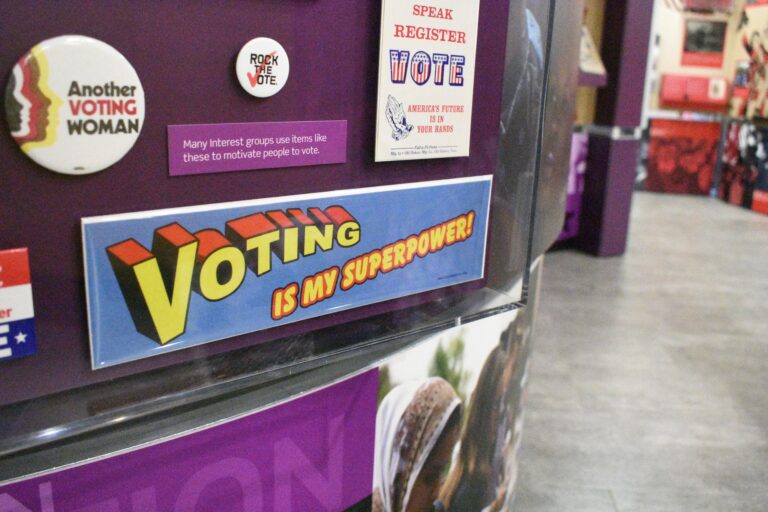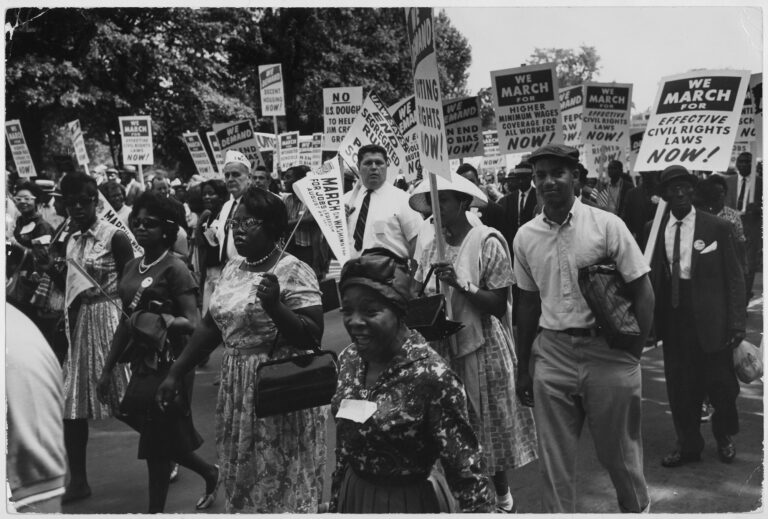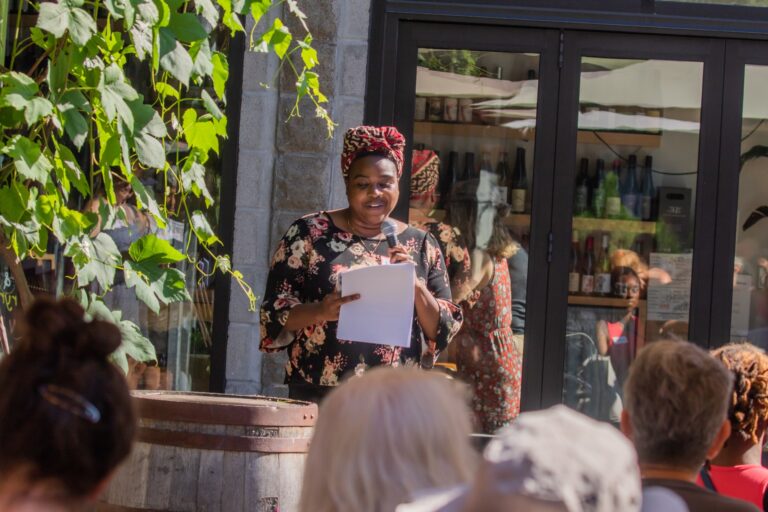
2021 Governor’s Award Recipient Sonia Nieto Reflects on her Childhood, Family, and Career
My life has been a series of serendipitous events of good fortune combined with hard work. The best example of serendipity was meeting my husband on a train in Spain because we were accidentally assigned the same seat. We fell in love immediately and recently celebrated our 54th anniversary.
Given where I started, I’m not supposed to be where I am right now. I am the daughter of working class, Puerto Rican immigrants. My parents had very little formal education. My mother made it through her third year of high school and my father had to leave school in fourth grade to work on a farm. They had neither the knowledge nor the wherewithal to help us through school, and certainly not to push us toward college, although they always supported everything we did, including our desire to continue our education. I spoke only Spanish until I went to school and although we had no books at home, I learned to read as soon as I went to school. But in school, I never saw or heard about anybody like me in books. I didn’t read a book by a Puerto Rican until I was out of college. All of that has an impact on your psyche and self-confidence. You start to think there’s something wrong with you and your people rather than with the system that created that kind of perspective and instilled it in you.
From the time I started school, I knew I wanted to be a teacher because I saw teachers as women with power. I made a decision early on that I wanted to go to college and become a teacher. I’m not sure how I came to that decision except that I had a cousin, ten years older than me, who was at City College. When I was in fourth grade, my teacher asked the class, “How many of you are going to college?” I was in a class of mostly African American and Puerto Rican kids. I raised my hand high up in the air but as I looked around I saw that I was the only one with my hand up. My teacher said something like, “Well, we always need people to clean our toilets.” That comment has stayed seared in my memory.
Until I was 13, we lived in poor, working class neighborhoods. My father owned a small bodega in Brooklyn. It was because of his willingness to work very long hours [16 to 20 hours a day, every day except every other Sunday when he took off the afternoon], and my mother’s tireless work raising three kids, one of whom, my brother, was diagnosed as mentally retarded and autistic, that at that point we were able to buy a house in the middle-class neighborhood of East Flatbush. We were the first Puerto Rican family on our block and probably one of the first in the entire neighborhood. By moving to East Flatbush, I had the opportunity to attend one of the best public high schools in the city. My new classmates did not talk about IF but WHEN and WHERE they’re going to college. Essentially, we moved zip codes and that changed my life.
I did well in high school but because going to college was not something my parents had expected or planned, I felt I had to ask my father if I could go to college. It wasn’t because my parents didn’t support our education but simply because they knew very little about it. I still remember being very nervous as I waited for him to get home one night. I walked over to him and asked, “Papi, can I go to college?” And he said, “Do what you can to get in. And we’ll make sure that we do everything we can to support you.” And they did, always.
I attended the small Brooklyn campus of St. John’s University in Queens [the campus no longer exists, the larger building having since become a 12-story apartment building]. College changed my life and gave me a different perspective about my future. I loved it all: I was involved in the Spanish club, where I became president, and the international relations club where I became vice-president. I was also very active in a sorority. My experience at St. John’s gave me the self-confidence I had been lacking and changed how I interacted with the world.
After graduating from St. John’s, I spent a year studying for my master’s degree in a program through New York University in Madrid where, as I’ve mentioned, I met my future husband. After returning from Madrid, I started working in the field of education and everything fell into place. I think I landed exactly where I was supposed to land. I loved teaching and later being a professor and researcher. First, I taught in an intermediate school in Brooklyn and after that at the first public bilingual school in the Northeast. After several years of teaching elementary and intermediate school, I was recruited to the Puerto Rican Studies Department at Brooklyn College. Even though I didn’t yet have a doctorate, I was hired because I had been one of the city’s first bilingual teachers and Brooklyn College was creating a teacher preparation program within the Puerto Rican Studies department and the School of Education.
My activism started when I became a bilingual teacher in 1972. It was there that I began to understand my responsibility to advocate for students who had been denied the equal and excellent education that all children deserve but that many – particularly children of color and those living in poverty – do not receive. That recognition became the impetus for my growing activism rooted in the struggle for public education and especially bilingual education, multicultural education, ethnic studies and, later, social justice more broadly. It was a volatile time in terms of civil rights as different communities were demanding recognition. I was involved in these demands, participating in takeovers, demonstrations, and other activities. I was briefly arrested for being one of the “BC44” for taking over the Registrar’s Office at Brooklyn College. It was a heady time that taught me a great deal about the importance of civic education and social justice work. Three years later, we moved to Massachusetts so that I could study for my doctorate. The first course I took in the School of Education, now the College of Education, was an introduction to multicultural education. It was 1975 and the field was brand new. It opened up a whole new world for me, giving me the language for what I had been trying to articulate as a teacher and professor.
In April 1978, shortly before completing my doctoral studies, I went to Cuba with the Venceremos Brigade. Described by Wikipedia as “a politically motivated international organization founded in 1969 by members of the Students for a Democratic Society (SDS) and officials of the Republic of Cuba,” the purpose of the Venceremos Brigade was to show solidarity with the people of Cuba, particularly with Cuban workers, after the Cuban revolution especially in light of the U.S. boycott of Cuba that has now lasted for more than 60 years. Over 48 brigades from all over the world, consisting primarily of young adults, have taken part over the years by working in the sugar cane fields, housing construction, and other forms of physical labor. I was a member of the 11th Brigade. At 35 years of age, I was probably one of the older members of the group. Our job was to help with building housing, which at the time was severely limited for poor and working-class Cubans. It was physically exhausting work, much more than I had experienced before that time. The campsite was located in the countryside, about an hour from Havana. We worked alongside Cuban workers who were very kind and forgiving of all our mistakes, even if they had to re-do most of the work we did! We lived in dormitory-style housing, with triple bunks, all the women living in one bunk and all the men in another. The hard physical work we did was complemented by visits to other parts of Cuba and talks about different aspects of Cuban life including education, the arts, and history.
Leaving my ever-supportive husband and 2 daughters for 6 weeks, being in Cuba taught me a great deal about humility, flexibility and, yes, what a hard day’s work is really like. Of course, these trips weren’t sanctioned by the U.S. government but having previously taken part in civil rights and other social justice movements, most of us Brigadistas felt that the U.S. stance on Cuba was not only unreasonable but also undemocratic. We wanted to see for ourselves what the Cuban Revolution was about. It was an exciting and eye-opening experience. While I understood that there were many social and political problems in Cuban society, I came back convinced that the United States nevertheless had a lot to learn from Cuba in terms of support for universal public education and health care, a reverence for the arts and humanities, and other policies.
The humanities have always been significant in my life. Ever since I started school and learned English, which started when I was six years old, I’ve always been a reader. As a child, I gravitated toward the books that most spoke to me. The most inspiring were about adventurous women, like Heidi, Little Women, even Mary Poppins. One of my research areas as a faculty member was Puerto Rican children’s literature, maybe because I never saw books about Puerto Ricans when I was a kid. We weren’t at all like the people in the books that I read and I guess it’s no surprise that I ended up focusing on literature and education as a graduate student and, later, as a researcher and teacher. I went to Spain to study Spanish and Hispanic literature. As an academic, my research centered on Puerto Rican children’s literature and multicultural education. I also loved history, though not necessarily how it was taught in school. I took a course on the constitution at St. John’s as an undergraduate student and it was probably the first history course I loved.
I have written over a dozen books throughout my career and I would say that my first, in 1992: Affirming Diversity: the Sociopolitical Context of Multicultural Education, now in its 7th edition, best encapsulates me as a writer and educator. Although it took me just about 2 years to write, it took conceptualize, it took many more to conceptualize and for my ideas to take root. The first edition was selected by the Museum of Education at the University of South Carolina as one of the books that helped define education in the 20th century. I’m very proud of that.
Several of my books have done quite well. Many have featured some of the teachers who have most inspired me. I asked my daughter Alicia López, middle school teacher now in her 27th year of teaching, to be my co-author for my most recent book, Teaching, A Life’s Work: A Mother-Daughter Dialogue (2019). In 2016, I wrote my memoir, Brooklyn Dreams: My Life in Public Education, which put me in touch with my life…where I had been, how grateful I was to have learned from so many people in my past, including my family. It’s a piece of my family’s history. At the same time, it chronicles the history of public education from the mid-twentieth century to the first decade of the twenty-first century.
A number of years ago, I realized that mentoring has been the most important aspect of both my professional and personal life. Mentoring has a legacy that no book can have because it resides in the people one is able to influence. In mentoring, you are influencing lives directly. I think it’s my most important contribution to the field of education. After the books are out of print, the lives that people impact through mentoring will go on.
I always said to my doctoral students, “Don’t try to be neutral. You can’t be neutral.” We all come to wherever we are with our own biases and assumptions, and the best we can do is to confront those assumptions and those biases honestly. Since I first became a teacher my own learning, or unlearning and relearning, has been a work in progress. I guess that’s why I love the field of education. A lot of history is now smacking us in the face. Even though my professional life has been devoted to equity, diversity, and social justice, I’m learning new things every day about the injustice that different communities have faced historically. How is it that we haven’t had these conversations before? The humanities can help illuminate these things. The humanities are essential. I think they help us understand the current crises affecting both our institutions and our personal lives. They help us open our minds to new perspectives. They help us to think more deeply. They give us the wherewithal to challenge assumptions, especially our own. They allow us to calculate risks and so to take more, to be courageous. Social justice issues have come to the fore more than ever. People have an increasing need to reckon with them. The humanities immerse us in new ideas, new perspectives, and new challenges that we haven’t faced before, as well in confronting some of the old challenges that have dogged our nation since its very founding.




